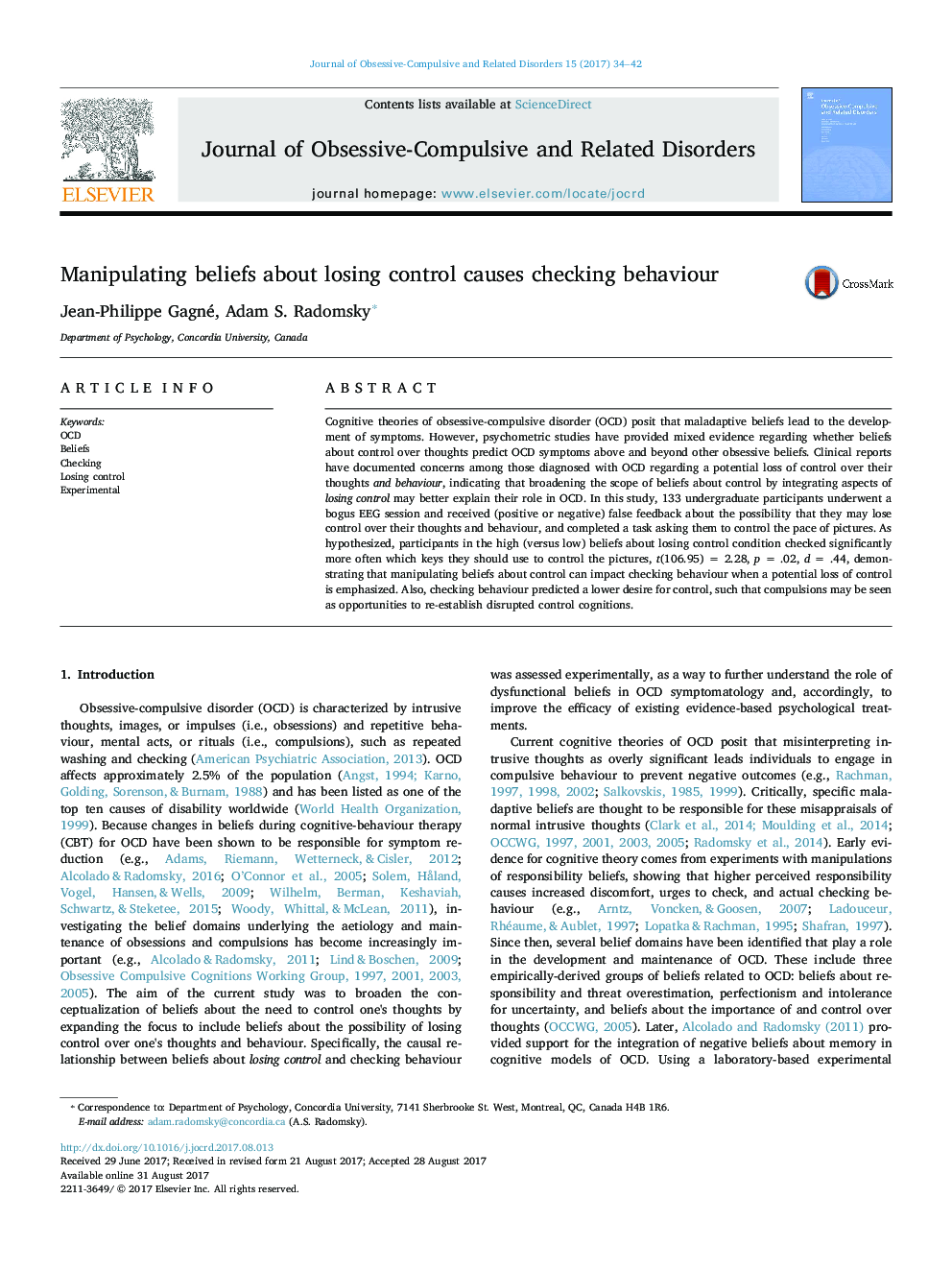| کد مقاله | کد نشریه | سال انتشار | مقاله انگلیسی | نسخه تمام متن |
|---|---|---|---|---|
| 5039278 | 1473192 | 2017 | 9 صفحه PDF | دانلود رایگان |
- A broader conceptualization of beliefs about control over thoughts is proposed.
- A manipulation of beliefs about control with a focus on losing control is tested.
- Manipulating beliefs about a potential loss of control led to checking behaviour.
- Checking behaviour predicted a lower desire for control.
- Beliefs about losing control should potentially be targeted during CBT.
Cognitive theories of obsessive-compulsive disorder (OCD) posit that maladaptive beliefs lead to the development of symptoms. However, psychometric studies have provided mixed evidence regarding whether beliefs about control over thoughts predict OCD symptoms above and beyond other obsessive beliefs. Clinical reports have documented concerns among those diagnosed with OCD regarding a potential loss of control over their thoughts and behaviour, indicating that broadening the scope of beliefs about control by integrating aspects of losing control may better explain their role in OCD. In this study, 133 undergraduate participants underwent a bogus EEG session and received (positive or negative) false feedback about the possibility that they may lose control over their thoughts and behaviour, and completed a task asking them to control the pace of pictures. As hypothesized, participants in the high (versus low) beliefs about losing control condition checked significantly more often which keys they should use to control the pictures, t(106.95) = 2.28, p = .02, d = .44, demonstrating that manipulating beliefs about control can impact checking behaviour when a potential loss of control is emphasized. Also, checking behaviour predicted a lower desire for control, such that compulsions may be seen as opportunities to re-establish disrupted control cognitions.
Journal: Journal of Obsessive-Compulsive and Related Disorders - Volume 15, October 2017, Pages 34-42
